Diploma in Mechanical Engineering (Automobile)
November 18, 2023 2024-03-22 8:40Diploma in Mechanical Engineering (Automobile)
Diploma in
Mechanical
Engineering
(Automobile)
About this Course
Embark on a 3-year adventure with our Diploma in Automobile Engineering. Discover the in and out of crafting, testing, and maintaining vehicles—from motorcycle to cars and trucks. Aspiring automobile engineers are equipped for various roles in the industry, including design, examination, assembly, and testing of vehicles and their components. From troubleshooting to final fixes, you'll be the go-to expert.
The course provide knowledge about the manufacturing, operation, design, and inspection of automobiles, ranging from cars and motorcycles to trucks and buses. Gear up for an exciting journey in shaping the future of the automotive world.
Some of the Popular Career Paths Include
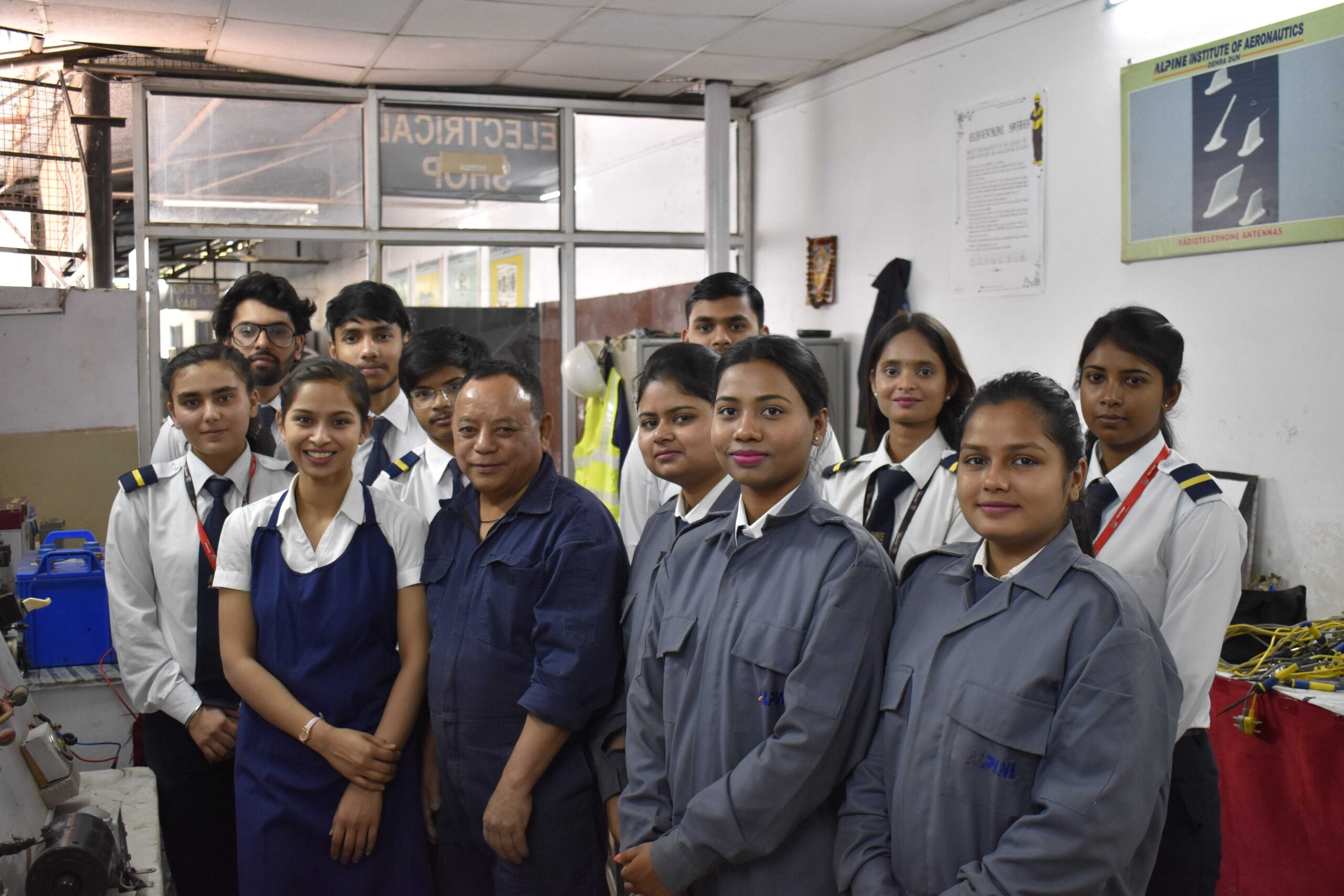
Life of a
Diploma Mechanical Engineering (Automobile) Student
Your day begins with the hum of engines in labs, diving into the intricacies of vehicle design and dissecting engines. Afternoons are a playground of hands-on experiences, troubleshooting, and fixing real challenges faced in the automotive world. It's not just about reading about vehicle dynamics; you're testing and tweaking them.It's not just classes; it's a workshop playground preparing you for a thrilling journey as an automotive engineer
Download Brochure
Curriculum
Semester | Code | Subject |
I Semester | 101 | Financial Accounting I |
102 | Ethics & Corporate Social Responsibility | |
103 | Business Communication | |
104 | Introduction to Aviation Industry | |
105 | English Language | |
106 | Basics of Computer | |
II Semester | 201 | Human Resource Management |
202 | Business Statistics | |
203 | French Language | |
204 | Environment Studies | |
205 | Airport Functions of Airlines | |
206 | Physical and Health Wellness | |
207 | Introduction to Aeronautics |
III Semester | 301 | Micro Economics |
302 | Financial Accounting II | |
303 | Airport Strategic Planning | |
304 | People Management | |
305 | Understanding of Interpersonal Skills | |
306 | Passenger/Customer Behavior | |
IV Semester | 401 | Entrepreneurship development |
402 | Constitution of India | |
403 | Air Ticketing Management | |
404 | Management Accounting | |
405 | Management & Organizational Behavior | |
406 | Interview Skills |
V Semester | 501 | Internship |
502 | Logistics and Air Cargo Management & Handling | |
503 | Macro Economics | |
504 | Aviation Safety & Security Management | |
505 | Leading & Team Work | |
506 | Elective -1 (Paper-1) or Elective- II (Paper-II) | |
VI Semester | 601 | Airline Customer Service |
602 | Value Education | |
603 | Business Law | |
604 | Aviation Law, Aircraft Rules & Regulations’ | |
605 | Employability Skills | |
606 | Elective -1 (Paper-1) or Elective- II (Paper-II) |
VII Semester | 701 | Decisional Techniques for Managers |
702 | E-commerce | |
703 | Research Methodology | |
704 | Aircraft Maintenance Management | |
705 | Elective -1 (Paper-1) | |
706 | Elective- II (Paper-II) | |
VIII Semester | 801 | Services Marketing for Aviation Industry |
802 | International Business | |
803 | Strategic Management for Aviation | |
804 | Dissertation with Internship | |
805 | Digital Marketing |
Our Proud Alumni

Animesh Banerjee

Jameson

Mritunjay Chaudhary

Lakshmi S. Nath

Pasan Pavan Kalyan

Rahul Jaiswal

Shivam Kumar

Yadhika Ghatani
Photo Library
Crafting careers, fueling dreams. Where learning meets adventure, everyday.

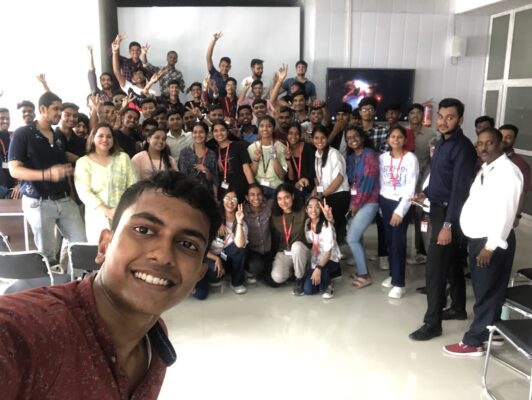
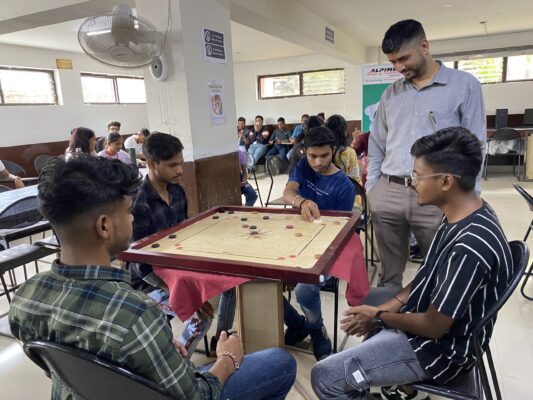


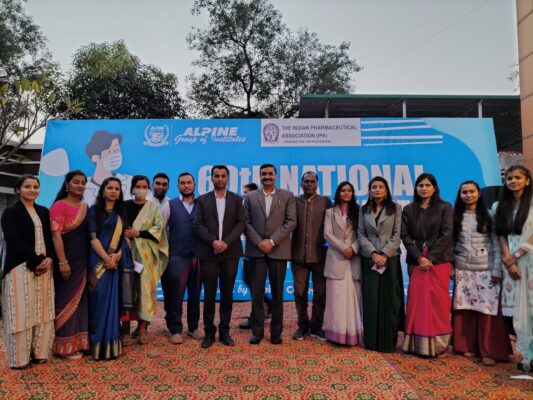
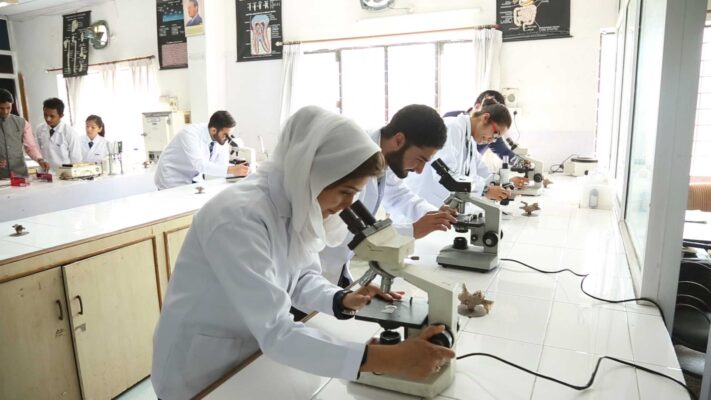
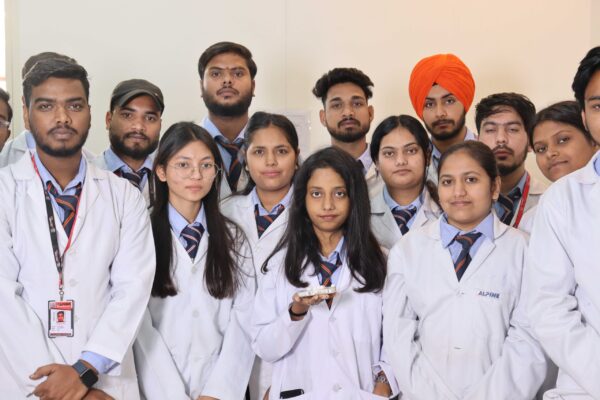
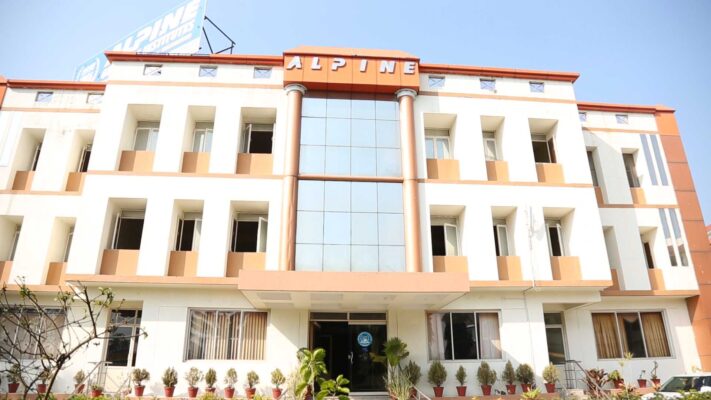

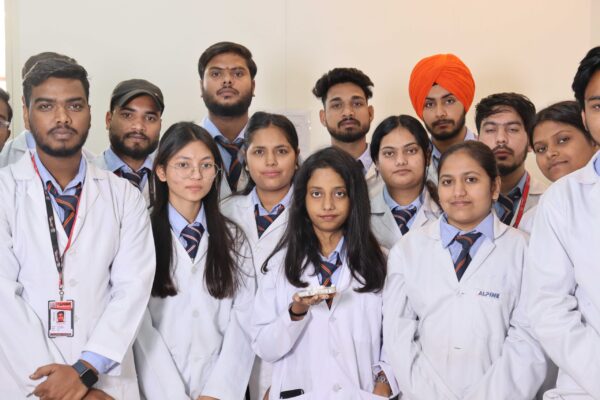
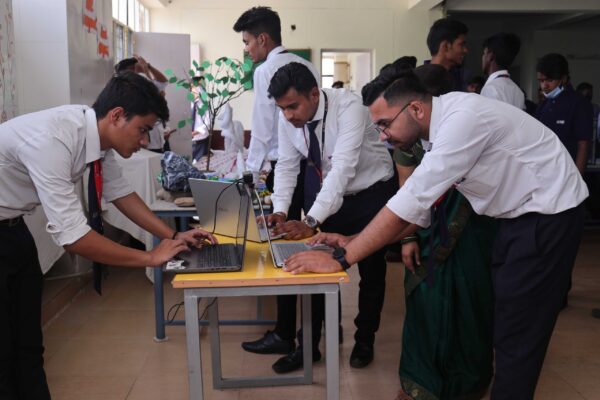
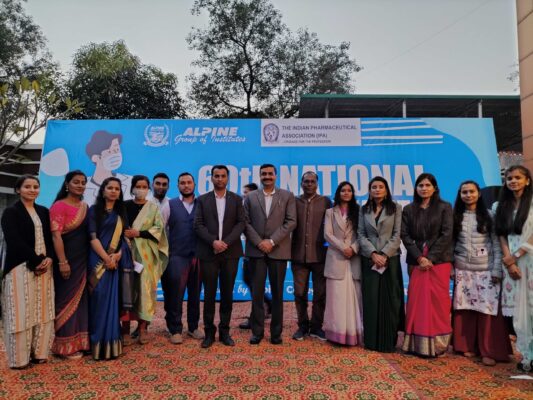
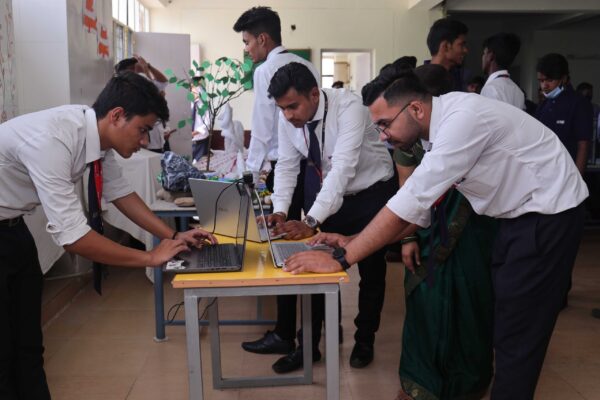
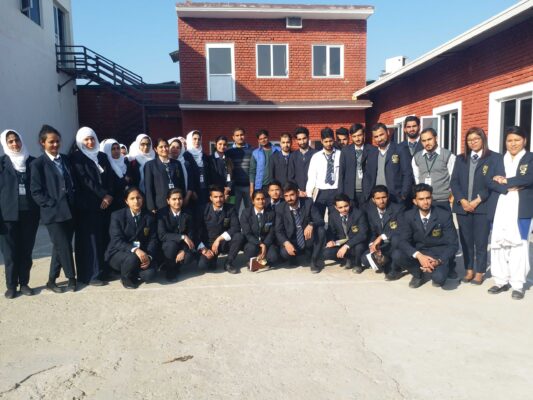
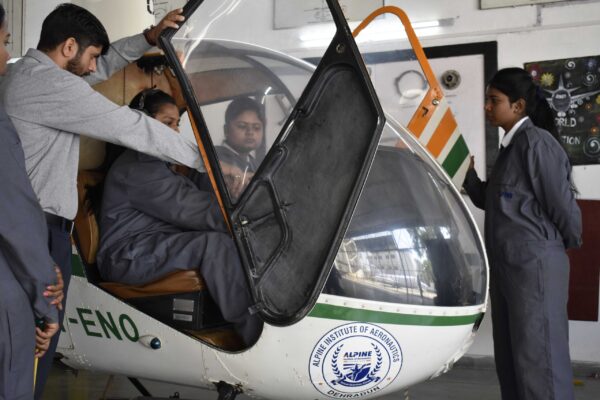
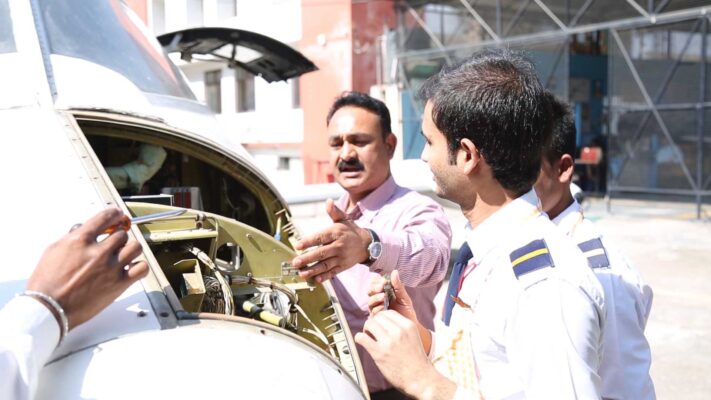
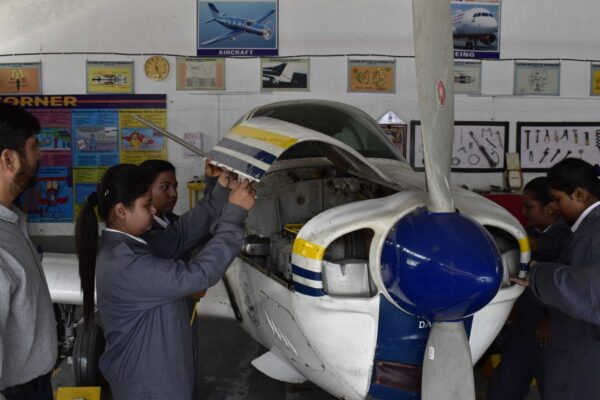

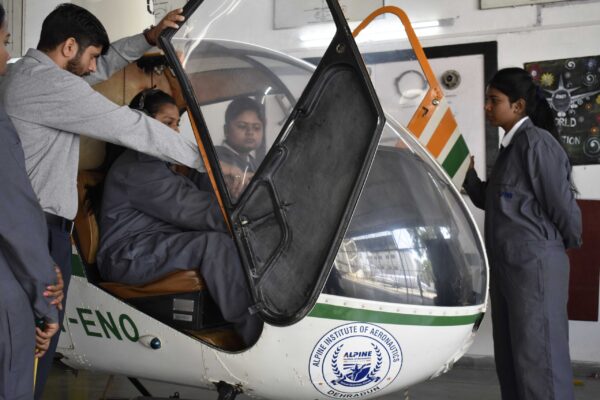
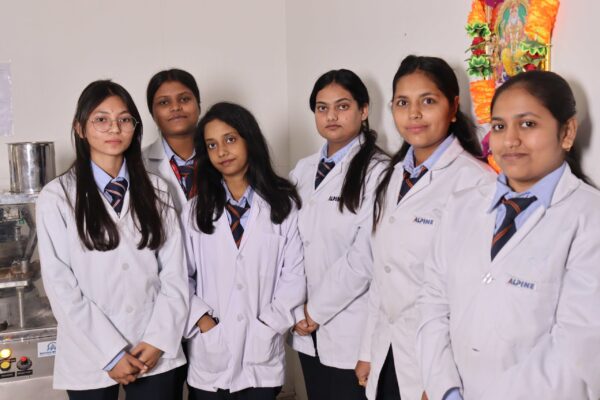
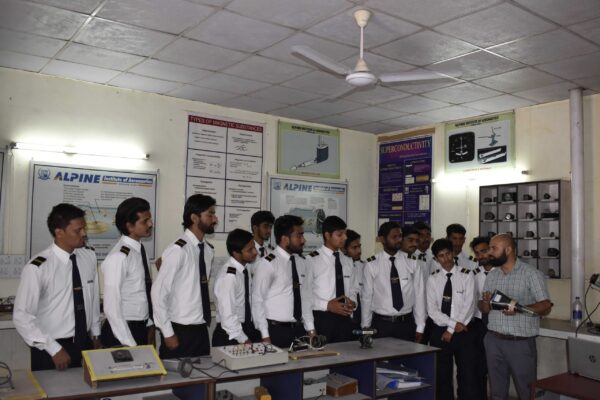
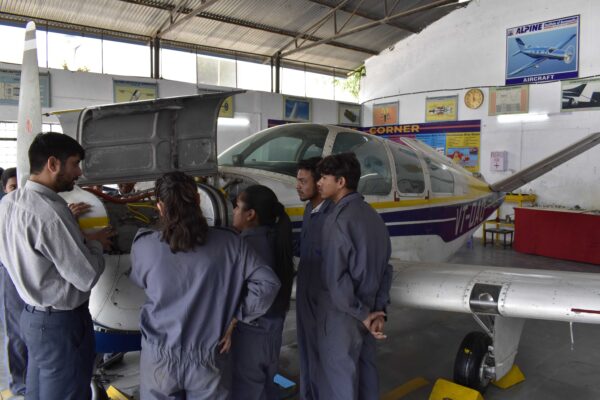
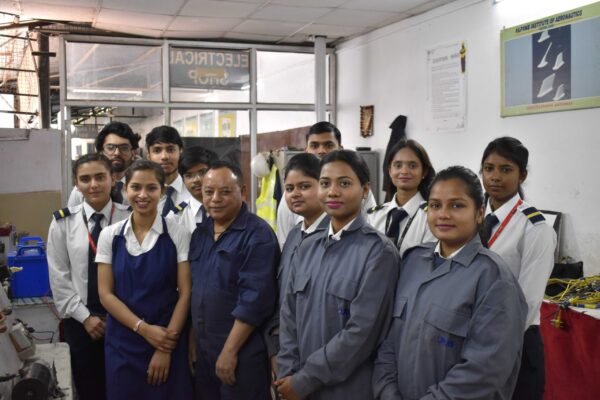
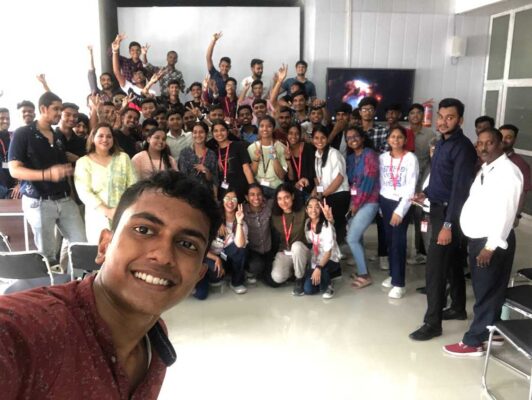
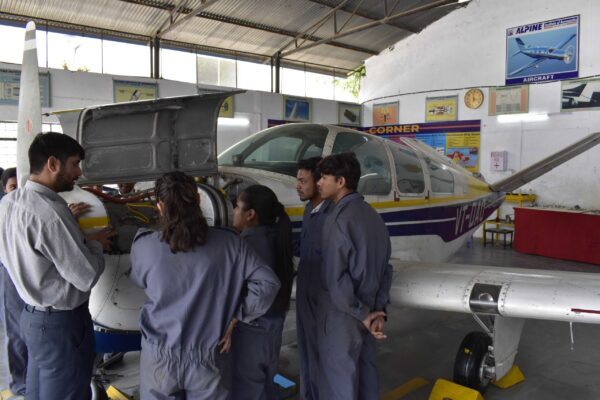
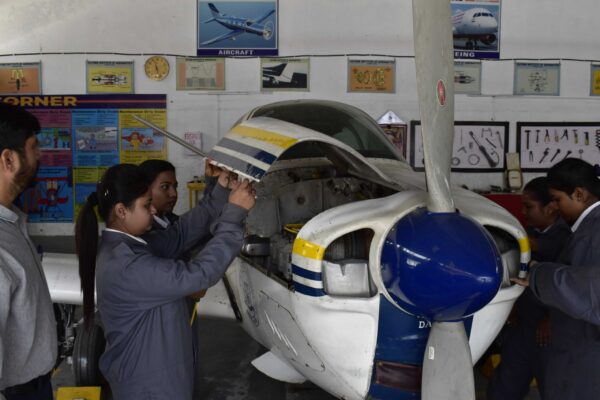

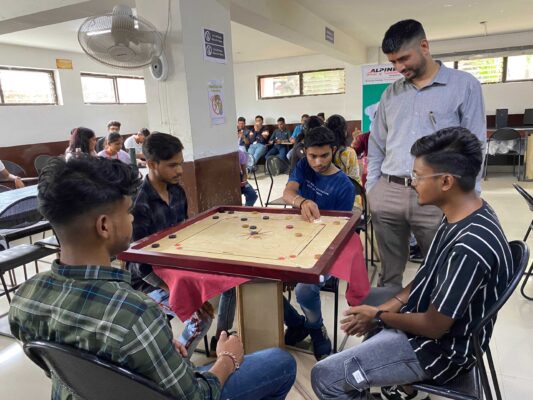

Frequently Asked Questions
A Diploma in Mechanical Engineering can open up various career prospects in a range of industries.
- Mechanical Technician: Technicians play a crucial role in assisting engineers with designing, testing, and manufacturing mechanical devices.
- CAD Operator: Using Computer-Aided Design (CAD) software, these professionals create detailed technical drawings and plans based on the specifications provided by engineers.
- Manufacturing Technician: Technicians are involved in the production process, ensuring that machinery and equipment operate efficiently.
- Quality Control Inspector: Quality control inspectors examine products and materials for defects or deviations from specifications.
- Maintenance Technician: They are responsible for inspecting, repairing, and maintaining machinery and equipment in various industries.
- Sales Engineer: Sales engineers combine technical knowledge with sales skills to promote and sell technical products and services.
- Field Service Technician: Technicians in this role provide on-site support and maintenance for mechanical systems and equipment.
- Research and Development Assistant: These professionals contribute to the development of new products, materials, or technologies. They may be involved in testing, data analysis, and prototyping.
Some of the key benefits:-
- Entry-Level Employment: A Mechanical Engineering diploma opens the door to entry-level positions in various industries, such as manufacturing, automotive, aerospace, energy, and more.
- Versatility: Mechanical engineering skills are versatile and can be applied to a wide range of industries and job roles.
- Practical Skills: Diploma programs often emphasize hands-on, practical skills. This hands-on experience can be valuable in real-world situations, making you more employable and effective in technical roles.
- Global Demand for Engineers: Mechanical engineers are in demand worldwide. The skills acquired through a diploma in Mechanical Engineering can make you marketable internationally, providing the potential for working in different countries.
- Contribution to Innovation: Mechanical engineers often play a crucial role in innovation and the development of new technologies. Being a part of projects that push the boundaries of technology can be intellectually rewarding.
For three year diploma course:-
Candidate must have passed High school examination or equivalent in any stream from a recognized educational board.
For lateral entry:-
Candidate must have passed (10+2) with PCM or ITI in any Stream from a recognized educational board.
A Diploma in Mechanical Engineering typically covers a range of fundamental subjects:-
- Engineering Mathematics: Fundamental mathematical concepts and techniques relevant to engineering applications.
- Engineering Drawing and CAD (Computer-Aided Design): Introduction to creating and interpreting technical drawings, as well as using CAD software for design.
- Thermodynamics: Basic principles of thermodynamics and their application to engineering systems.
- Mechanics and Strength of Materials: Fundamental principles of statics and dynamics, as well as the study of material properties and their response to various forces.
- Fluid Mechanics and Hydraulic Machines: Introduction to fluid behavior, basic fluid mechanics principles, and the study of hydraulic systems and machines.
- Manufacturing Processes: Overview of various manufacturing methods, including machining, casting, welding, and forming.
- Machine Drawing and Design: Introduction to engineering drawing and design, focusing on machine components and assemblies.
- Automobile Engineering: Basics of automotive systems, including engines, transmissions, and chassis components.



